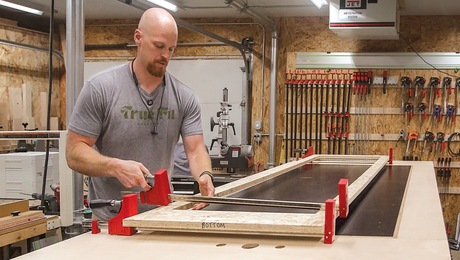What size wire for standby generator
Anybody know what size wire is required for about a 75′ run from a 17kw standby generator to the meter? My plan is to connect the generator to a service rated transfer switch at the meter. I will run the wire through conduit.















Replies
What voltage? I assume it's 240vac, single phase. Is there a circuit breaker on the generator, if so what size is it? Do you have the installation instructions for the generator?
17kva at 240v is about 70a
4ga copper is a safe bet.
Are you using a transfer switch that switches the neutral? That makes the difference whether you bond the neutral in the generator.
Does the generator have a main circuit breaker? If so that will determine the minimum size wire. If not you will need to install one. Check manufacturers installation instructions. For field installed overcurrent devixe the miniumum size CB should be 90 ampere to utillize 17KW (70ampere) output of gernerator. Wire should be a #2 copper. A service rated disconnect will need to be installed ahead of the transfer switch on the utility side. You will also need to look at neutral bonding. Unless you are familiar with this sort of thing you should contact an electrician that is familiar with stand by generator installations in your area. Roger
It has a 65 amp circuit breaker. I definitely intend to have all hookups done by a pro. I just wanted to dig the trench and drop the line in so I can save a few bucks.
I definitely intend to have all hookups done by a pro
Bill: All I can say (in apology for the tone of the previous post) is that if you educate yourself, you dont need to hire a sparky, you CAN do it all yourself, just take say 20 or so hours to read up on the subject of voltage drop, then the next time it will be 'easy'/
BTW as a DIY cost effectiveness as a sidelight - I drilled my own well with a home built drilling rig -- man was that an expensive learning process in the literally thousand or more hours of DIY labor, reading, and researching, but there was the 'satisfaction', plus no sales tax!!!! Did learn that the set of differential equations from Maxwell for electrical problems is the same as for drilling mud piped down 10,000 ft boreholes<G>
With a 65 ampere circuit breaker you can use #4 AWG copper conductors plus a #8 for the equipment ground conductor. Good idea to go with a pro even though you will get some guff from Junkhound! Hi, Hi. Roger
thanks. #4 it is. I usually prefer to be conservative when it comes to wiring.
The other question is whether the transfer switch breaks the neutral.
The same guy who rates air compressors rates generators. If they say 17KVA, that is max load. That is why I said 4ga was a safe bet, with the 65a breaker he could really be using #6 if it is THHN/THWN in pipe.
UF (assuming you could find it) would have to be #4, which is why I said that was the safe bet.
Whall, nobody can acuse me of being anti DIY, but to even ask a question like that says you don't know what you are doing, or are intellectually lazy?? This is the kind of question any competent sparky should be able to calculate in his head.
Learn E=IR, google wire tables, then include power factor and calculate 17kW*1.2 /240 to get your amps.
Use E=IR to get your voltage drop, go for < 3%, remember the wire runs both ways.
Use code table for ampacity if you are going to get it inspected, if not, then you need to learn some heat transfer also or just go by the voltage drop if in conduit.
Good luck, encourage DIY, please learn a little more first to protect yourself.
You would have gotten a lot more respect (from me anyway) if you had asked: I going to ... 17kW....etc. , how do I determine what size wire to use. Can you direct me to any web sources or texts to help educate myself.
BTW, this old DIY has buried paralled old taped up extension cords in the ground as feeders for a shed with a welder, but know enough to be safe, regardless of non-code issues.
EDIT PS: I replied before I read your last post.
Edited 7/27/2009 2:58 pm ET by junkhound